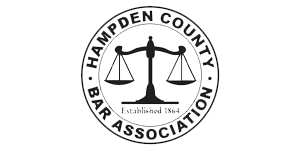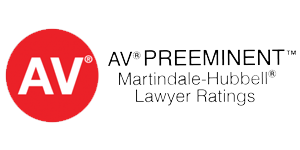
Medicaid & MassHealth Strategies
Having to place a loved one in a nursing home is an emotionally wrenching experience. To make matters worse, confusion often reigns supreme when navigating the Medicaid application process. Well-meaning family, friends and even professional advisers may give conflicting or incomplete advice causing families to needlessly lose their property and assets.
By planning ahead, you can easily protect all of your assets from the high costs of long-term care, either through the use of long-term care insurance (LTCI) or, where you do not qualify for LTCI, by setting up a Medicaid Asset Protection Trust (MAPT).
Long-term care insurance is the preferred option for protecting assets from nursing home costs, since it helps keep clients out of the nursing home – by paying for home care. Many clients over the years who were forced to spend their final days in a facility simply because they ran out of money to pay for home health aides. Additionally, for married couples, the home care option may protect the spouse from compromising their own health and finances with the heavy burden of caregiving in their later years.
When the client is turned down for long-term care insurance, or is unable to afford the premium, the next best option is the Medicaid Asset Protection Trust (MAPT). Making assets joint with adult children offers no protection since Medicaid considers all of the jointly held assets to be available for the care of the ill parent, except to the extent the child can prove the amount of their actual contribution. Additionally, outright transfers to children are generally inadvisable since those assets then become exposed to the children’s debts and liabilities, divorces, etc. In addition, some children spend the money, refuse to give it back when needed or die before the parent and pass those assets on to their heirs. One exception to the inadvisability of outright transfers to children is when nursing facility care is imminent or at least foreseeable. In such a case, the assistance of an elder law attorney is essential since the amounts to be transferred, the order of assets transferred and where to transfer the assets all require the advice of counsel. The object here would be to protect as much of the assets as possible and to qualify for Medicaid benefits at the earliest possible moment. If someone is just getting older, can’t or won’t get long-term care insurance and wants to plan ahead to protect their assets, the best option is to set up a Medicaid Asset Protection Trust.
Known as an “income only” trust, the MAPT names someone other than you or your spouse as the trustee, usually one or more adult children, and limits you to the income. The principal must be unavailable in order for it to be protected. These trusts are ideal for the family home as well as for assets the client is only taking the income from or is simply reinvesting. The client’s lifestyle is not generally affected since they continue to receive their pension and Social Security checks directly, they keep the exclusive right to use and occupy the home and they preserve all the tax exemptions on the home. The trust may sell and trade assets through the trustee. Nevertheless, the parent retains some measure of control by reserving the right to change the trustee in the event of dissatisfaction for any reason.
The MAPT is currently subject to a look-back period of five years. This means that if assets are transferred and the client needs nursing home care any time after five years have passed, the assets in the trust are protected. Nevertheless, it always pays to get started, since you get credit for the time you accumulate, even if you don’t make the five years. For example, if the client needs nursing home care, say, after only four years, then they would only have to pay for the one year that’s left.
The Medicaid Asset Protection Trust is also flexible. You may sell the home, the money is paid to the trust, and the trust may buy a condominium, for example, in the name of the trust so it is still protected. The trust may buy and sell and trade stocks and other assets. IRA’s and other qualified plans stay out of the trust since the principal of all such retirement plans are exempt from Medicaid. These types of assets avoid probate as they go directly to the designated beneficiaries at death.
MAPT v. Life Estate Deed
Clients often ask whether the home should be deeded to the client’s adult children while retaining a life estate in the parent or whether the Medicaid Asset Protection Trust should be used to protect the asset.
While the deed with a life estate will be less costly to the client, in most cases it offers significant disadvantages when compared to the trust. First, if the home is sold prior to the death of the Medicaid recipient, the life estate value of the home will be required to be paid towards their care. If the house is rented, the net rents are payable to the nursing facility since they belong to the life tenant. Finally, the client loses a significant portion of their capital gains tax exclusion for the sale of their primary residence as they will only be entitled to a pro rata share based on the value of the life estate to the home as a whole. All of the foregoing may lead to a situation where the family finds they must maintain a vacant home for many years. Conversely, a properly drafted MAPT preserves the full capital gains tax exclusion on the primary residence and the home may be sold by the trust without obligation to make payment of any of the principal towards the client’s care, assuming we have passed the look-back period. It should be noted here that both the life estate and the irrevocable Medicaid trust will preserve the stepped-up basis in the property provided it is only sold after the death of the parent who was the owner or grantor. Upon the death of the parent, the basis for calculating the capital gains tax is stepped up from what the parent paid, plus any improvements, to what it was worth on the parent’s date of death. This effectively eliminates payment of capital gains taxes on the sale of appreciated property, such as the home, after the parent dies. Both the revocable and irrevocable trusts also preserve any tax exemptions that the client may have on their home, such as senior and veteran’s exemptions.






